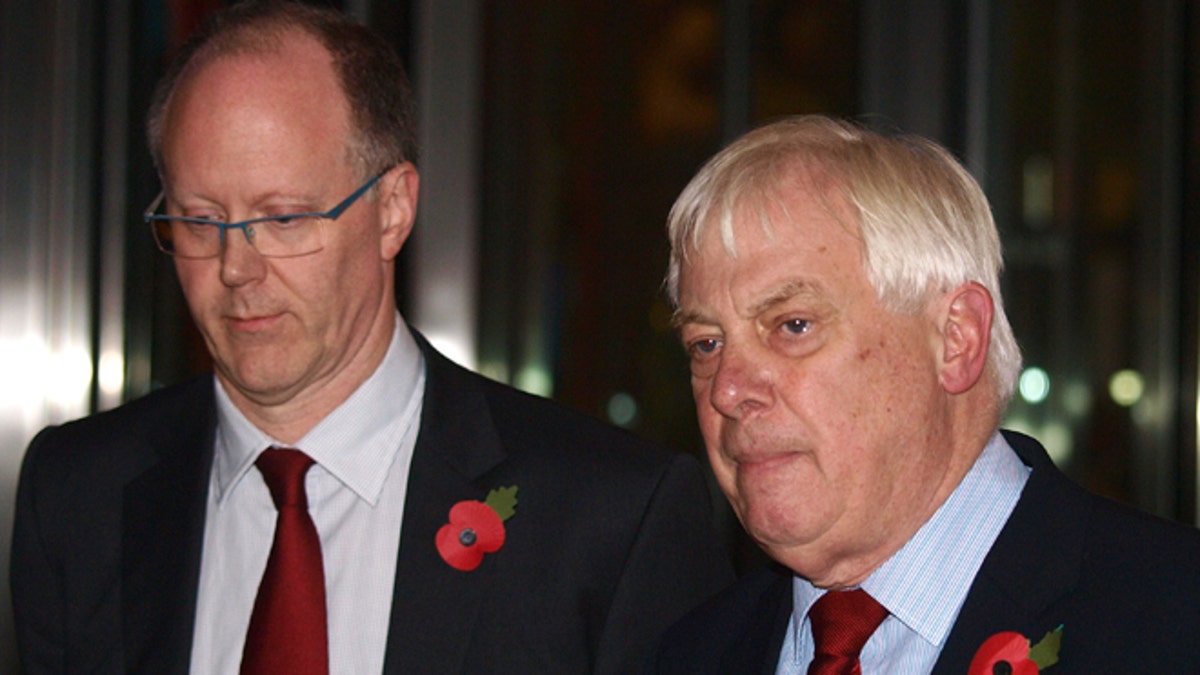
Nov. 10, 2012: The BBC Director General, George Entwistle, left, stands with the Chairman of the BBC Trust, Lord Chris Patten, as he announces his resignation as Director General outside New Broadcasting House in central London, after recent news program problems. (AP)
LONDON – The head of the BBC's governing body said Sunday the broadcaster needs a radical overhaul following the resignation of its chief executive in wake of a scandal over a botched report on child sex-abuse allegations.
Chris Patten vowed to restore confidence and trust in the BBC, which is reeling from the resignation of George Entwistle and the scandals prompting his ouster.
Entwistle resigned Saturday night amid a storm of controversy after a news program wrongly implicated a British politician in a child sex-abuse scandal, deepening a crisis sparked by revelations it decided not to air similar allegations against one of its own stars.
Patten told the BBC on Sunday he will not resign, saying he must ensure the publicly funded broadcaster "has a grip" and gets back on track.
"My job is to make sure that ... we restore confidence and trust in the BBC," he said, and called for a "thorough, radical structural overhaul."
The scandal comes at a sensitive time for Britain's media establishment, struggling to recover from an ongoing phone-hacking scandal which brought down the nation's best-selling Sunday newspaper, led to the arrests of dozens of journalists and prompted a judge-led inquiry into journalistic ethics and the ties between politics and the news media.
Kevin Marsh, a former senior editor of the BBC, said the resignation does little to re-establish public trust in the BBC, which is funded mainly by a tax on U.K. households that have televisions.
"The BBC asks the British public to pay its bills every year, and the only way it can do that is if the British public trusts the way it is spending its money," he said.
Entwistle took over as head of the BBC two months ago from Mark Thompson, who will become chief executive of The New York Times Co. this month. The broadcaster was emerging from a difficult period marked by budget cuts, job losses and mounting calls to justify its 3.5 billion pound ($5.6 billion) budget.
